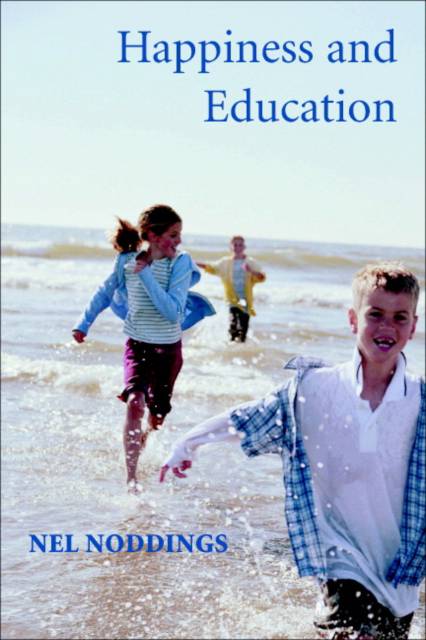
Bedankt voor het vertrouwen het afgelopen jaar! Om jou te bedanken bieden we GRATIS verzending (in België) aan op alles gedurende de hele maand januari.
- Afhalen na 1 uur in een winkel met voorraad
- In januari gratis thuislevering in België
- Ruim aanbod met 7 miljoen producten
Bedankt voor het vertrouwen het afgelopen jaar! Om jou te bedanken bieden we GRATIS verzending (in België) aan op alles gedurende de hele maand januari.
- Afhalen na 1 uur in een winkel met voorraad
- In januari gratis thuislevering in België
- Ruim aanbod met 7 miljoen producten
Zoeken
Omschrijving
When parents are asked what they want for their children, they usually answer that they want their children to be happy. Why, then, is happiness rarely mentioned as a goal of education? This book explores what we might teach if we were to take happiness seriously as a goal of education. It asks, first, what it means to be happy and, second, how we can help children to understand it. It notes that we have to develop a capacity for unhappiness and a willingness to alleviate the suffering of others to be truly happy. Criticizing our current almost exclusive emphasis on economic well-being and pleasure, Nel Noddings discusses the contributions of making a home, parenting, cherishing a place, the development of character, interpersonal growth, finding work that one loves, and participating in a democratic way of life. Finally, she explores ways in which to make schools and classrooms cheerful places. Nell Noddings is Lee L. Jacks Professor of Education, Emerita, at Stanford University. She is past president of the Philosophy of Education Society and of the John Dewey Society. In addition to twelve books, she is the author of more than 170 articles and chapters on various topics ranging from the ethics of care to mathematical problem solving. Her latest books are Starting at Home: Caring and Social Policy (University of California Press) and Educating Moral People: A Caring Alternative to Character Education (Teachers College Press), both published in 2002.
Specificaties
Betrokkenen
- Auteur(s):
- Uitgeverij:
Inhoud
- Aantal bladzijden:
- 318
- Taal:
- Engels
Eigenschappen
- Productcode (EAN):
- 9780521807630
- Verschijningsdatum:
- 7/07/2003
- Uitvoering:
- Hardcover
- Formaat:
- Genaaid
- Afmetingen:
- 155 mm x 229 mm
- Gewicht:
- 544 g

Alleen bij Standaard Boekhandel
+ 144 punten op je klantenkaart van Standaard Boekhandel
Beoordelingen
We publiceren alleen reviews die voldoen aan de voorwaarden voor reviews. Bekijk onze voorwaarden voor reviews.









